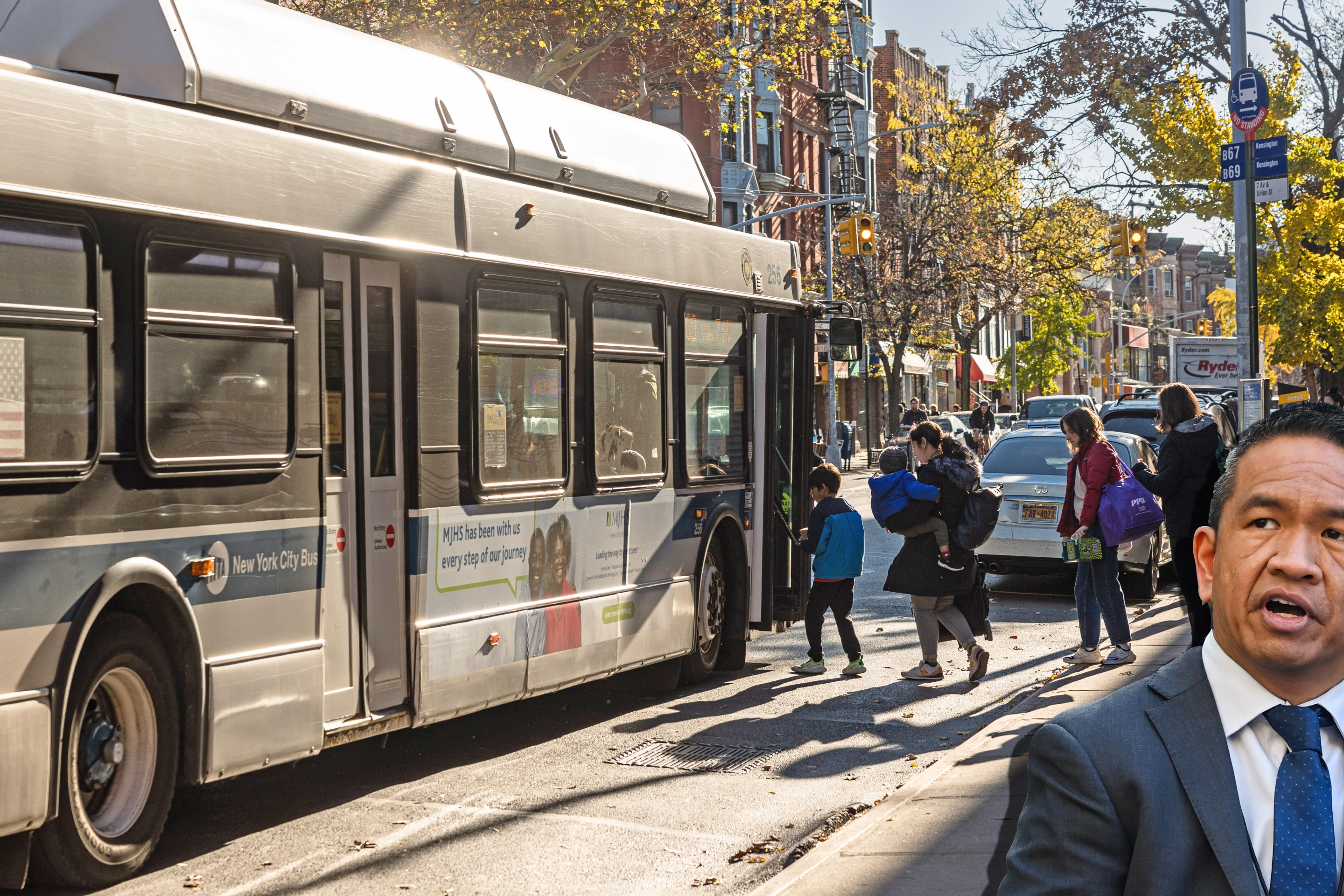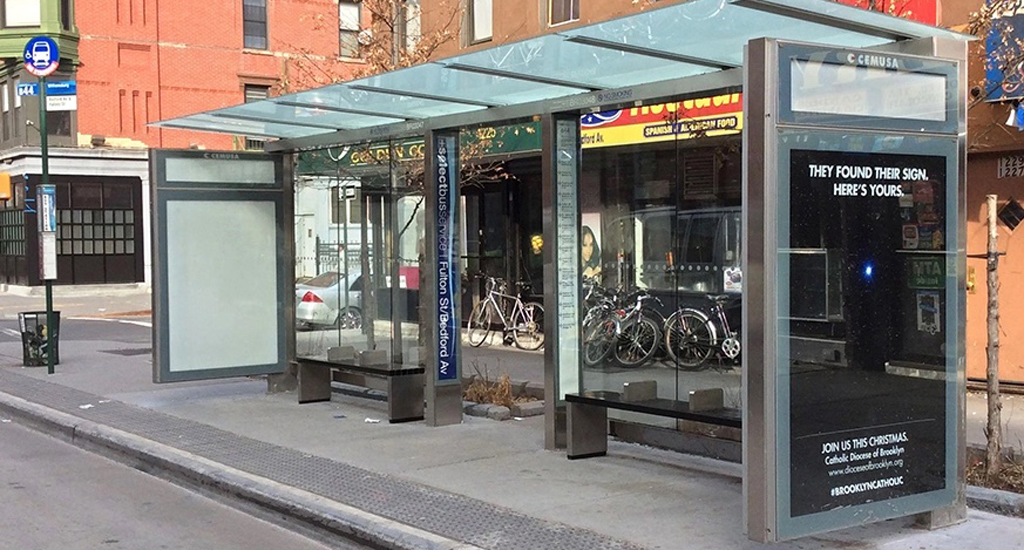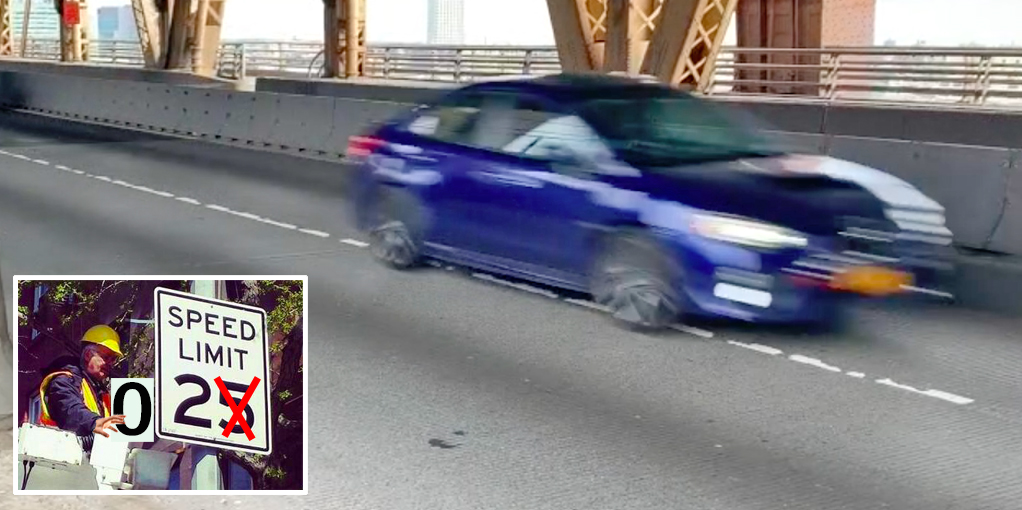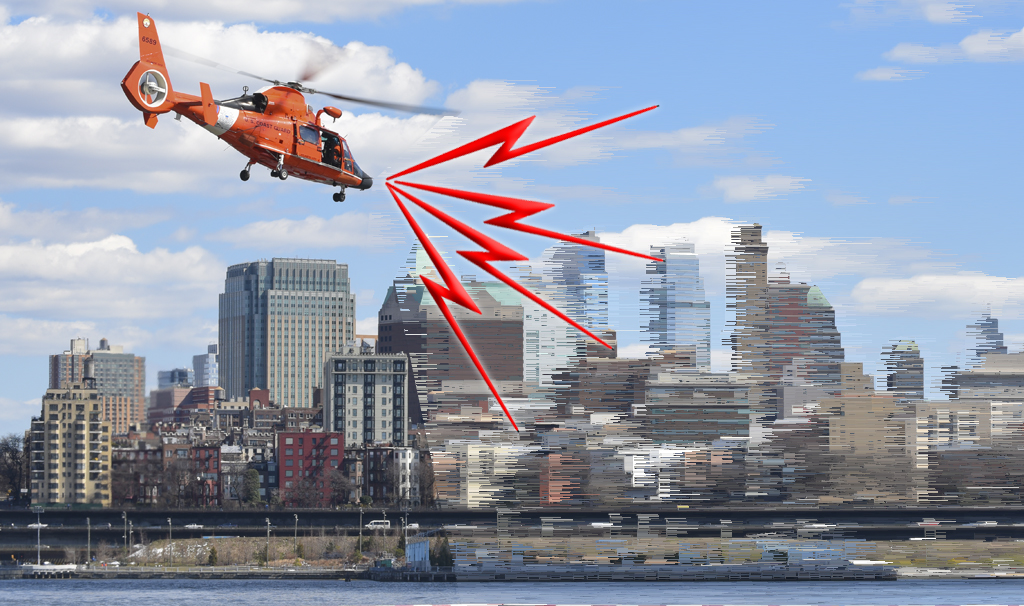Citizens Hammer NYPD Commissioner Kelly on Street Safety
12:30 PM EDT on March 25, 2008

Police Commissioner Ray Kelly at Baruch College last week
The following report was submitted by Carol Wood, a Murray Hill resident, along with Emilia Crotty, Bicycle Education Program Associate for Bike New York. Both are members of the NYC Bicycling Coalition.
Last Thursday evening, March 20, nearly 200 East Siders turned out for a "Town Hall Meeting" with NYC Police Commissioner Ray Kelly at Baruch College. The event was sponsored by Rep. Carolyn Maloney, who touted it in her latest newsletter as a chance to "discuss crime and quality of life issues."
As a New Yorker whose neighborhood is tormented by homicidal drivers -- my corner is #1 in pedestrian deaths citywide -- I jumped at the chance to raise our top cop's awareness of street safety. And I wasn't alone: In the elevator to the 14th floor auditorium, a woman began telling me how afraid she was to ride her bike around Murray Hill and that she hoped people would ask questions about traffic.
In her brief opening remarks, Rep. Maloney had to perform a little bait-and-switch: The commissioner would be taking questions on "the safety of our streets and homeland security," she said. But this mandate was ignored by the audience, which asked questions on a variety of topics. Interestingly, the issue of traffic safety was raised repeatedly.
You could say that the NYPD has been so successful reducing the murder rate (496 killed in 2007, out of 8.2 million people) that it leaves New Yorkers free to worry about less heinous crimes. Or you could say that the department really is neglecting its responsibility for traffic enforcement.
Kelly spoke about police initiatives to reduce crime, such as Operation Impact -- pairing police academy grads with seasoned cops and pouring them into crime "hot spots" -- and the city's Real Time Crime Center, with its use of high technology to gather data and its 111 employees who assimilate and distribute those data to officers on the street. The commissioner stated that every day 1,000 NYPD members are deployed to work on counterterrorism, given that NYC is at the "top of the terrorist target list." These accomplishments are proceeding despite a force that has 5,000 fewer officers than in 2001, and whose new academy recruits, offered a starting salary of just $25,000, often leave for better-paying jobs.
As the second audience member to get the mic, I told the commissioner that local streets are a more immediate threat to my safety than terrorism. (I hastened to add my respect, as a cyclist, for both traffic laws and pedestrians -- expecting someone in the room to grumble about crazed bicyclists.) I asked: Since the Mayor's PlaNYC 2030 includes initiatives for increased traffic enforcement, what were the commissioner's plans for improving traffic, not only to reduce congestion, but also threats posed to cyclists and peds, of whom 200 were killed last year? A couple of these comments drew applause.
Kelly seemed to acknowledge the department's weakness in traffic enforcement by recalling its personnel shortfall and revealing that the 130 additional traffic enforcement agents envisioned by PlaNYC have fallen to budget cuts. Traffic deaths last year were the lowest they'd been since 1931, Kelly said -- adding that even one traffic death was too many. On this point, to me, he sounded sincere.
Still, I wondered how his department would reduce the traffic toll, considering the disparate priorities given to preventing the sporadic likelihood of terrorist attack versus the unrelenting daily assault of the automobile.
Kelly mentioned areas in which the department is trying to improve traffic safety, beginning with targeting bicyclists who ride on the sidewalk. But the audience didn't bite at that red herring. So he followed with red light enforcement for both cars and bikes.
Before he finished, a woman in the front row launched a harangue about aggressive drivers. As observed by Emilia Crotty:
The woman, who had been hit by a car, made an important point: That NYPD officers on the street and at intersections make it their priority to move motorized traffic, not to protect pedestrians' crosswalk space or their safety.
She repeatedly stated that it is this "car first" attitude that makes streets dangerous. She also commented that officers need to focus on more accurately reporting crashes, particularly by questioning the driver AND the pedestrian/bicyclist involved, and by correctly reporting the physical details of the crash (her own "accident report" mistakenly described the crash scenario).
Someone mentioned that car crashes were preventable, not "accidents," drawing a loud round of applause.
Shortly after, a man complained about the exercises in which officers gather in packs and then race their squad cars around the city (a.k.a. "Critical Mass for Cops"). Kelly said this is a homeland security exercise intended to keep terrorists off guard because they would not know where the cops would end up next (another CM tactic).
Maloney interjected that the NYPD's tactic of gathering in various places had helped to break up the drug trade in her former East Harlem neighborhood, by "disrupting their activities." This rationale did little to satisfy a complaint that police tactics are disrupting citizens' activities, rather than those of terrorists.
From that point forward many of the questions from the audience addressed homeland security, including data collection and intelligence. Some speakers supported more wiretapping; others claimed that we live in a police state. Sprinkled in between were very specific comments from individuals living next to drug addicts and nightclubs or who have difficulty traveling in a wheelchair due to homeland security measures.
Photo: Carol Wood
Stay in touch
Sign up for our free newsletter
More from Streetsblog New York City
What to Say When Someone Claims ‘No One Bikes or Walks in Bad Weather’
Yes, sustainable modes are more vulnerable to bad weather. But that's why we should invest more in them — not less.
NYC Transit’s New Operations Chief Wants To Fight ‘Ghost Buses’
One-time transit advocate and current MTA Paratransit VP Chris Pangilinan will oversee bus and subway operations for the whole city.
Friday’s Headlines: Gimme Bus Shelter Edition
The days of the Landmarks Preservation Commission reviewing every proposed bus shelter in landmarked districts may be no more. Plus more news.
Deal Reached: Hochul Says ‘Sammy’s Law’ Will Pass
The bill, though imperfect, has been four years in the making.
Komanoff: A ‘Noise Tax’ Can Ground NYC Helicopters
A proposed $400 “noise tax” on “nonessential” flights is a start — and it will work.




